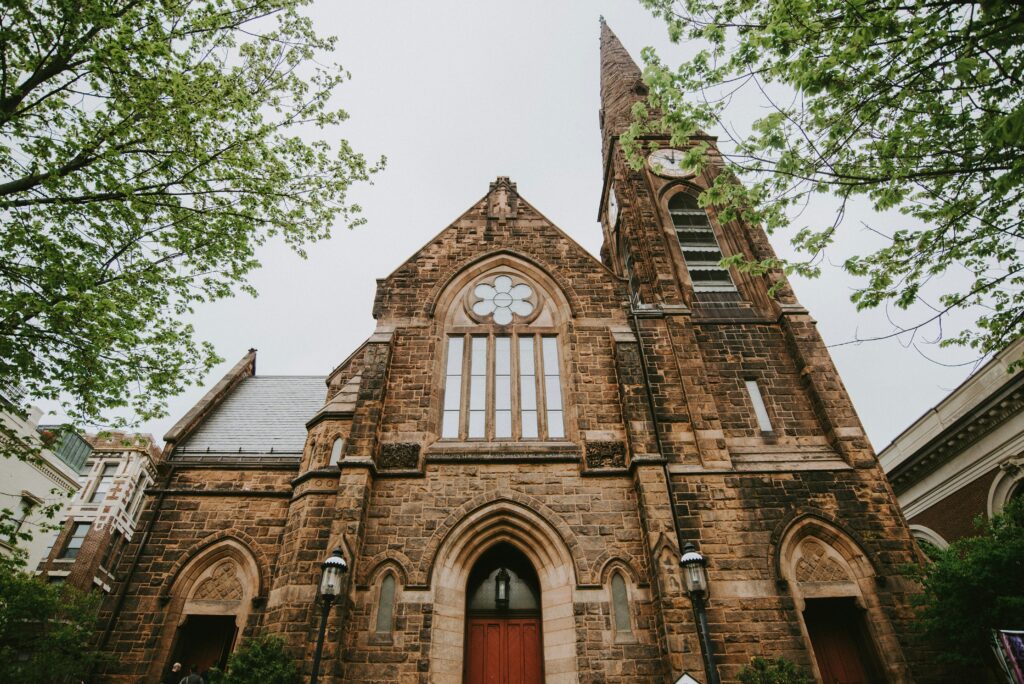9Marks wants to see more churches and pastors taking responsibility for raising up the next generation of pastors. To help our readers catch a vision for what that might look like, we asked several organizations closely tied to one or several local churches how they fulfill this mission. With one exception, each of the following organization answers the same 18 questions.
Here are the answers for the Capitol Hill Baptist Church internship program (submitted by Ben Wright). Capitol Hill Baptist Church is located in Washington, D. C.
- Organization name
Capitol Hill Baptist Church
- Year began
1998
- What’s the relationship between the organization and a local church?
They are the same.
- How many students per semester or year?
6/semester, 2 semesters/year
- What’s the length of the program?
5 months
- Does the program cost? How much?
No cost to interns; roughly $100K/year cost to church
- Is it full time? Are students allowed/required to be doing something else (work, study) at the same time?
It is full time. Outside work is discouraged if not prohibited.
- Is housing made available for students? Cost?
It is made available in most cases. Occasionally married applicants offer to provide their own to increase their likelihood of being accepted.
- What are the program’s goals?
We are attempting to give aspiring pastors a church-centric or a congregationally-shaped view of the Christian life, and we’re trying to accomplish that worldview shift or that paradigm shift in their thinking.
- What’s involved in the application process?
A written application requires references and personal information, especially related to pastoral ministry; candidates are also required to attend a 9Marks Weekender, where they will be informally interviewed. Application can be found at www.capitolhillbaptist.org.
- Can you give a brief overview of how the program works from the student’s standpoint?
To begin with, an intern is required to join the church. Interns read about 5,000 pages and write daily papers on their reading. Mark Dever and the other pastors then lead weekly discussions on the readings and papers. Interns also shadow pastoral staff, sit in on all church meetings including elders’ meetings, and must schedule lunches with every elder and every member of the staff. They must also schedule lunches with a cross-section of the congregation, attend all services and special events, and participate in a small group.
- What responsibilities does the student have in a typical week?
Read a few hundred pages, write papers, and attend meetings.
- Any further opportunities or responsibilities for the student?
Occasional teaching opportunities in small groups or other small settings. Also, every intern class attends one Dever speaking engagement out of state.
- How many pastors are involved, how are they involved, and what’s the cost on their time?
Four staff pastors are involved to varying levels. Mark Dever and Michael Lawrence give 10 to 15 hours per week to the program. Deepak Reju and Andy Johnson give about 5.
- How many non-pastoral staff involved and what do they do?
Several non-pastoral staff oversee various intern responsibilities. Each intern has a mentoring relationship in which he meets with a pastoral assistant (or occasionally a pastor) for about an hour a week. One pastoral assistant has administrative oversight in the program, including purchasing supplies, planning schedules, and overseeing some responsibilities.
- What is this program good for accomplishing?
It gives interns an in-depth look at what Scripture teaches a church should be, what a healthy church looks like, and how it’s led. Again, the program aims to give young men called into ministry a new ecclesiological worldview.
- What is it not good for accomplishing?
Pastoral placement, evaluating qualifications sufficiently, testing teaching gifts.
- Where are your graduated students now? What are they doing?
Numbers are approximate: 30% on church pastoral staff; 40% in seminary or PhD work; 20% working secular jobs; 10% in church planting/missions/missions support.
